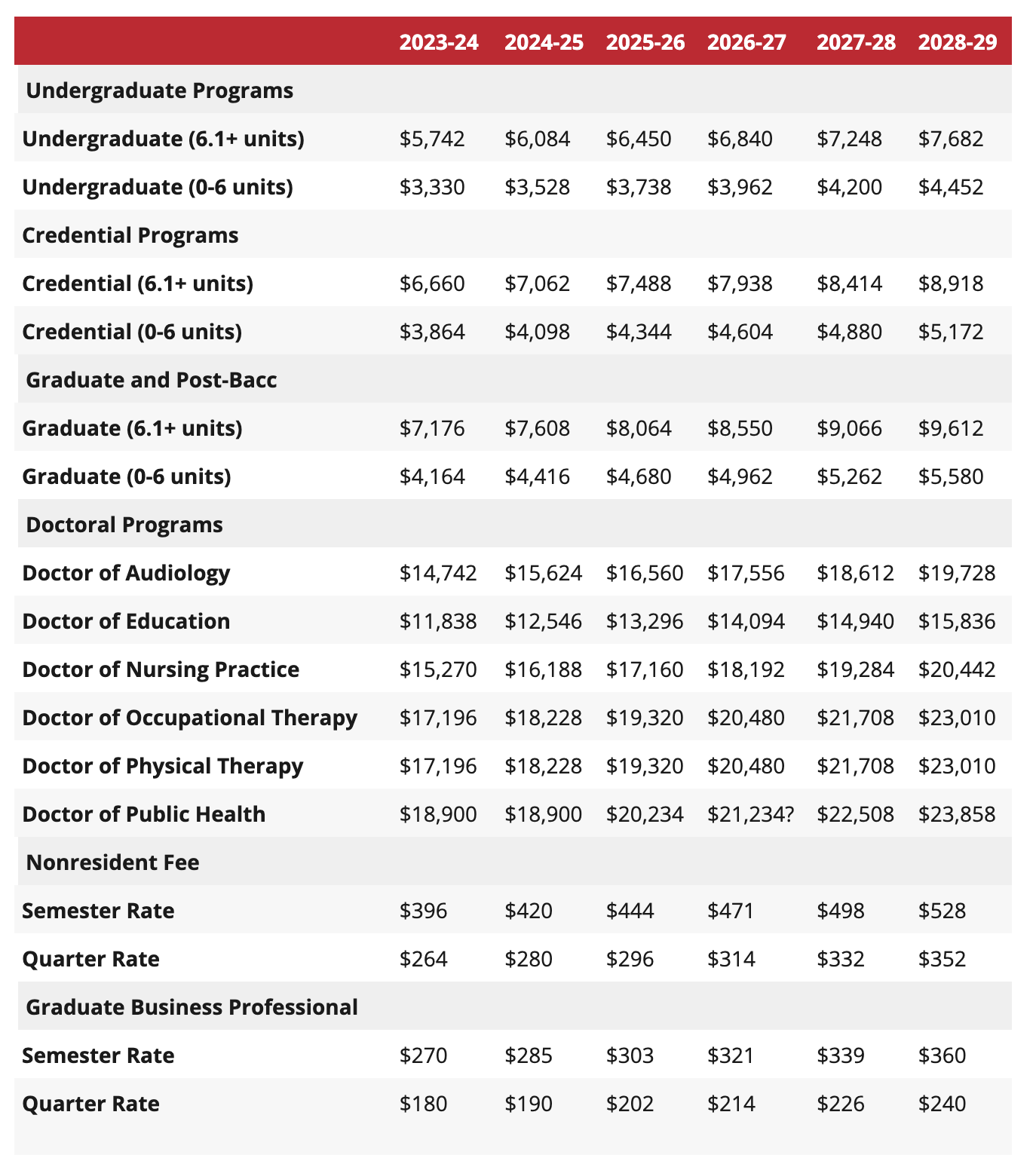California State University students will see a 6% annual tuition increase starting fall 2024.
The system’s board of trustees voted 15–5 for the five-year tuition rate hike Wednesday despite vocal opposition from students, faculty and staff during more than 2 hours, 30 minutes of public comment.
The rate increase will affect the system’s 460,000 undergraduate and graduate students. The board also agreed to sunset the increase after five years and be reevaluated for the 2029–30 academic year.
The vote means that the first annual increase would be $342 to $6,084 for full-time undergraduate students in 2024. Full-time graduate students will see tuition increase by $432 to $7,608.

